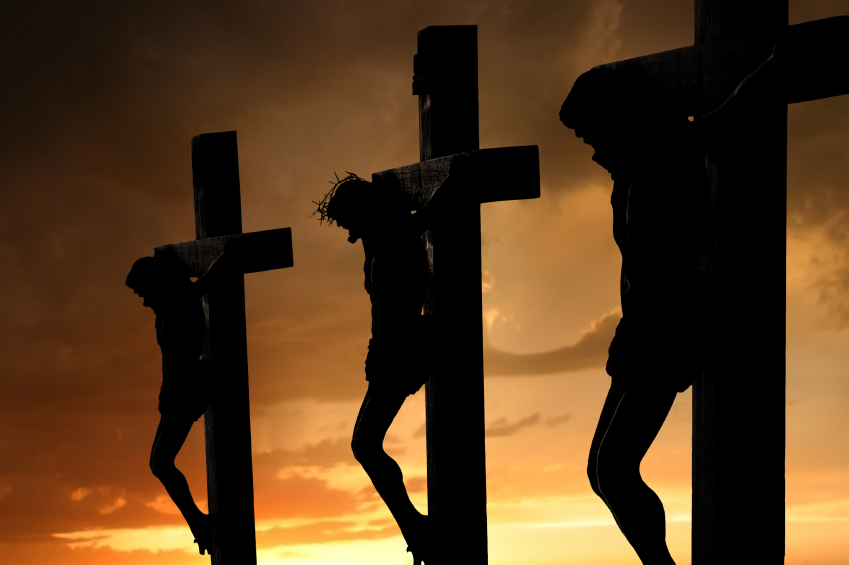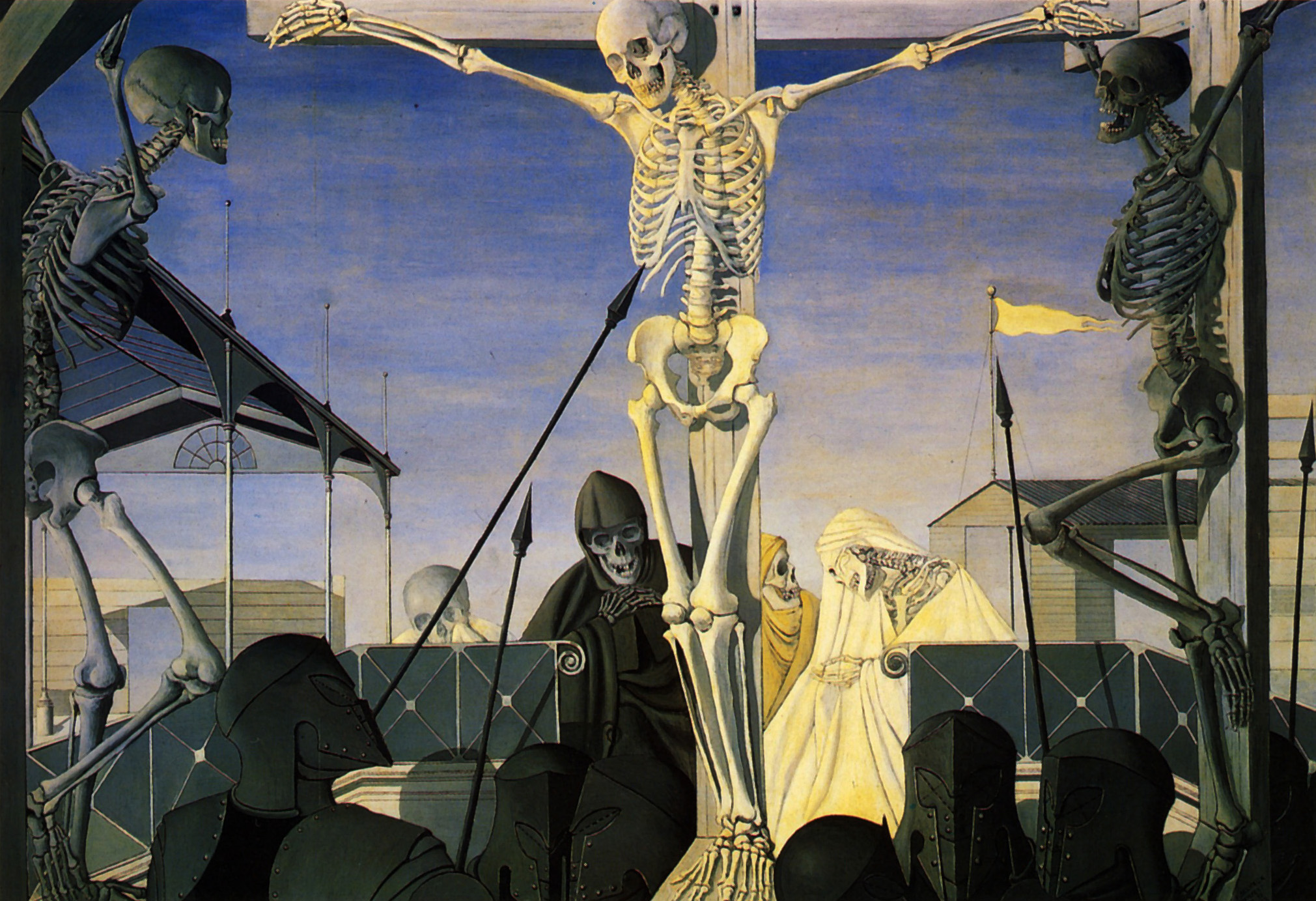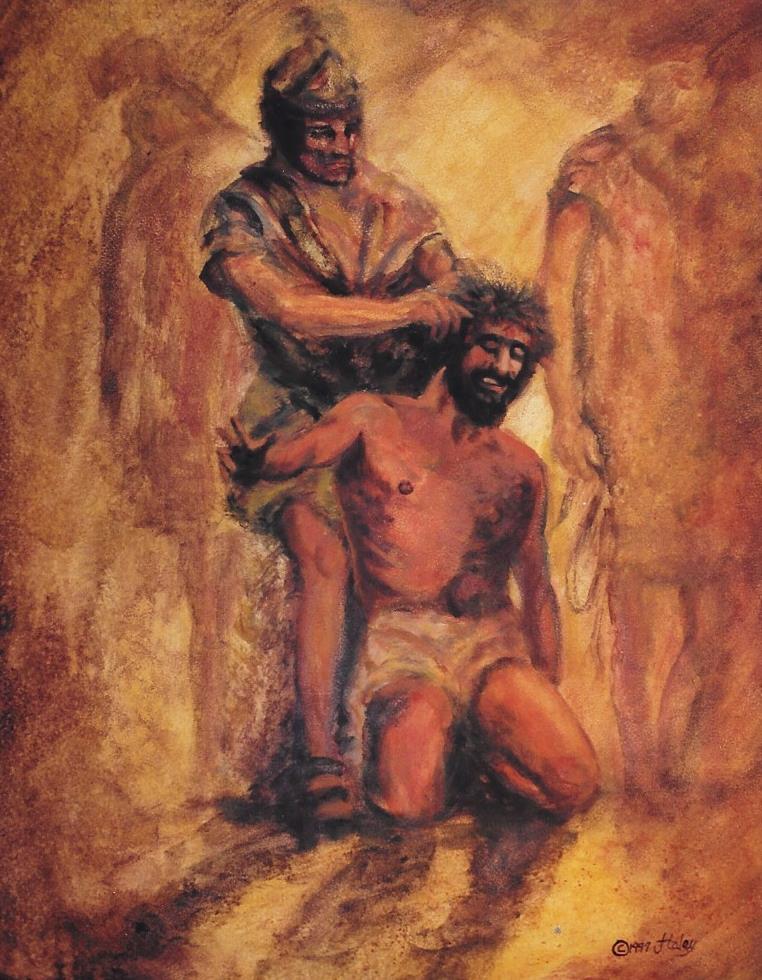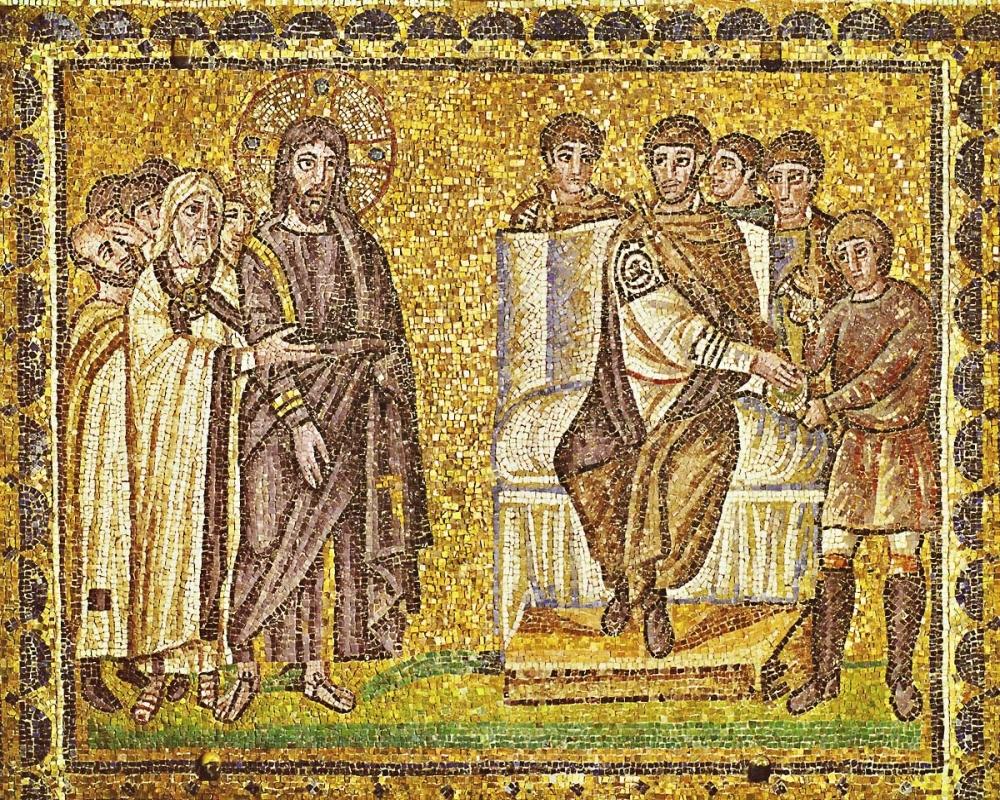When the Sabbath
was over, Mary Magdalene, and Mary the mother of James, and Salome, bought
spices, so that they might come and anoint Him. Very early on the first day of
the week, they came to the tomb when the sun had risen. They were saying to one
another, "Who will roll away the stone for us from the entrance of the
tomb?" Looking up, they saw that the stone had been rolled away, although
it was extremely large. Entering the tomb, they saw a young man sitting at the
right, wearing a white robe; and they were amazed. And he said to them,
"Do not be amazed; you are looking for Jesus the Nazarene, who has been
crucified. He has risen; He is not here; behold, here is the place where they
laid Him. But go, tell His disciples and Peter, 'He is going ahead of you to
Galilee; there you will see Him, just as He told you.'" They went out and
fled from the tomb, for trembling and astonishment had gripped them; and they
said nothing to anyone, for they were afraid.
In the copies of Mark that we have, this is the final
section. Almost certainly, this is not
the end of the book, but the true ending has been lost. Thus, this is the only
resurrection story that still exists in the book of Mark.
The two Marys and Salome went to the tomb
where Joseph laid him in order to bury him properly, with full honor. Such honor could possibly include up to a
hundred pounds of spices and oils. As
they were walking to the tomb, they were wondering who was going to roll it
away. In their culture such heavy work
as rolling a (possibly) 100+ pound stone was not usually done by women.
When they arrived there, they found the stone
had already been set aside, and there was a youthful-looking man in a white
robe sitting on it. The women were
shocked—probably at the gall of a young man who dared to roll a tomb-stone
away, but possibly also at his apparel, which was very odd. White clothing is in Scripture almost
exclusively worn by royalty or spiritual beings (Esther 8:15; Daniel 7:9; Mark
9:3). This was most certainly an angel,
as other gospels say (Matthew 27:5), and angels are sometimes called men when
their appearance is rather ordinary (Genesis 19:1, 10-11).
The angel said that what Jesus had prophesied
had come true—he had been risen from the dead.
Now this prophecy may not have been made to the women, for the angel
told them to tell Peter and the twelve that Jesus had told them he was to be
risen and to meet them in Galilee (which Jesus did at the last supper in Mark
14:28).
However, instead of telling the
disciples immediately, the women ran and said nothing. This turn of events was totally unexpected,
from their perspective, and they didn’t know whether to believe the strange man
or not. And this is the earliest end of
the book of Mark—with a strange young man claiming Jesus’ resurrection, but the
women refusing to tell anyone about it.
Not really a proper ending at all, and it almost certainly didn’t end
this way. But how it really ended, no
one knows for certain.
I have always hated movies that end in the middle of the story, with narrative threads hanging all over the place. I want to know what happened to this person, or how the story really ended.
But, of course, in real life we don't get tidy endings. When we die, it won't be the end of the story of all the people we know or love, but that will be the end for us. It's just there. The real ending of Mark gives us a hope, a real hope, that what happened to Jesus is just what he said it would be-- with his resurrection. But we don't see Jesus, and we only have the word of a strange young man. The women were scared and they didn't want to tell anyone what they saw. So Jesus' story in Mark doesn't end triumphantly. Just with fear and a hope.
Really, our life in Jesus isn't much better than that. We can be bold in Jesus and faithful to Jesus and live in love and mercy, as he commanded and follow Jesus to the cross with all our hearts and minds. But when we examine it closely, we find that all we have is our fears that drive us and the barest hope that all that Jesus promised will really happen.
For many, that just isn't enough. They want certainty. They want proof. They want full assurance. But Jesus doesn't give us that. Instead, he gives us faith that a life of mercy and sacrifice for God is worth it. And really, isn't that enough? Isn't it enough to have lived our lives before God, with only the barest hope and the faith that Jesus gives us?
















